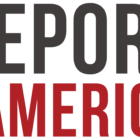See our November 2022 SF Election Guide for a nonpartisan analysis of measures and contests on the ballot in San Francisco for the election occurring Nov. 8, 2022. Voters will consider the following proposition in that election.
Proposition H would move elections scheduled for odd-numbered years to even-numbered ones. Proponents argue that the measure is a boon for democracy since it could lead to double the number of voters casting ballots. San Francisco election participation data indicates that in even-numbered years, nearly twice as many voters turn out than in odd-numbered years.
Supervisor Dean Preston put forward the ballot measure, arguing that aligning city elections with federal elections would strengthen a democratic electoral process. He pointed to other cities, including Los Angeles and San Jose, that have already made similar changes.
Those cities made the change following a state law passed in 2015 called the California Voter Participation Rights Act or Senate Bill 415. It was supported by a range of voting rights organizations, which cited the importance of encouraging voter participation in municipal elections. The state law prohibits cities from holding off-cycle elections if doing so would result in a significant decline in voter turnout, defined under state law as 25% or more.
San Francisco and other cities became exempt from the law after the city of Redondo Beach won a lawsuit claiming that the law should not apply to charter cities. San Francisco filed an amicus brief in support of the city’s home rule argument. An appellate court agreed and ruled that charter cities like San Francisco were free to change their election cycle but were not compelled to follow the change in state law mandated by SB 415. Preston said it was high time San Francisco made the change during a rules committee meeting on July 6.
“On voter rights and voting rights — we’ve actually fallen significantly behind on this issue,” he said. “The state law passed in 2015, and San Francisco still has not consolidated our elections. So, I think this charter amendment is an opportunity to get us back on track and ensure that more San Franciscans participate in our local democracy.”
A Controller’s Office analysis stated that for every odd-numbered-year election that doesn’t happen, the city would save just under $7 million.
An opponent who called into a Board of Supervisors hearing on the issue argued that consolidating elections means adding significant numbers of items to the ballot, and that could dilute the impact of down ballot measures since voters would be less willing to inform themselves on so many topics.
Moving odd-numbered-year elections to even-numbered years would affect the offices of the mayor, sheriff, district attorney, city attorney and treasurer. Breed could end up serving more than 10 years as mayor; a special election brought her into office in July 2018 after the death of former Mayor Ed Lee, and she was elected to her first full four-year term in 2019. If this charter amendment passes and Breed is re-elected in 2024, her second term would end in early 2029.
In the official opponent argument filed with the Department of Elections, former Republican mayoral candidate Richie Greenberg frames the measure as “cancelling” the 2023 elections.
“Failing politicians around the world scheme to extend their hold on power by challenging, canceling, nullifying or postponing elections,” he wrote. “It’s one of the most jaw-dropping hallmarks of a tyrannical, undemocratic regime.”
However, Breed, who would get an additional year in her tenure should Proposition H pass, opposed the measure. In an interview on KCBS Radio, she said the changes were being pushed by “a group of democratic socialists” who want to “have more control and power of being able to get more of their people elected.”
Proponent arguments filed with the Department of Elections were signed by former Mayor Art Agnos, the San Francisco Democratic Party, Harvey Milk LGBT Democratic Club, the San Francisco Latinx Democratic Club, the San Francisco Women’s Political Committee, the San Francisco Labor Council, and the Sierra Club. They pushed back against the opposition, writing: “Opponents of Proposition H want you to believe that it is better for San Francisco if FEWER people vote. Prop H ensures more voters, especially those from marginalized communities, make their voices heard in our political process.”
This measure requires more than 50% affirmative votes to pass.









